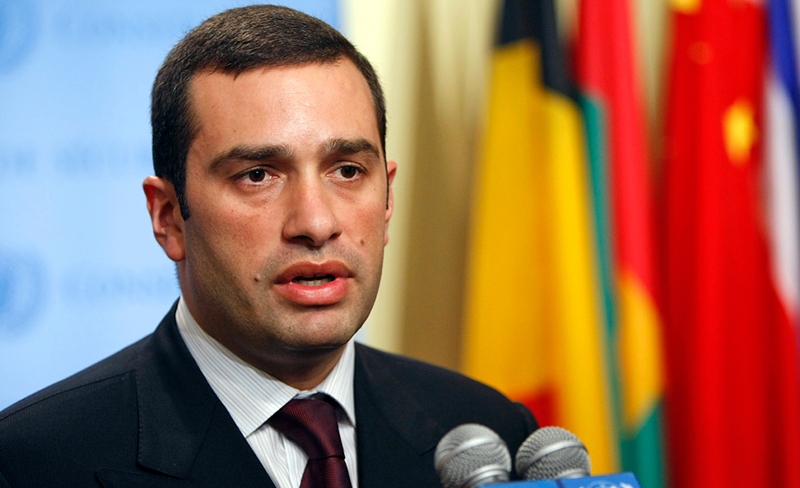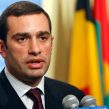
Possibility of Hosting Anti-ISIS Training Center Creates Confusion in Georgia
Publication: Eurasia Daily Monitor Volume: 11 Issue: 173
By:

On September 23, Foreign Policy magazine’s “The Cable” blog reported that Georgia offered to host a training center for Washington-backed Syrian rebels in order to aid the US-led coalition against the Islamic State (IS—formerly known as the Islamic State in Iraq and Syria, or ISIS) (Foreign Policy, September 23; Civil Georgia, September 23). The story was later repeated by Reuters (September 24). Key Georgian media sources quickly focused on the news as well, especially after the Georgian Ministry of Defense did not deny Foreign Policy’s report and stated that the country was considering options for how to help the international coalition. Moreover, the Georgian ambassador to the United States, Archil Gegeshidze, told the media that Tbilisi was, indeed, offering to host such a training center and that the offer was under consideration in Washington (Rustavi 2, Imedi TV, Channel 1, September 23–24; Civil Georgia, September 23).
Georgia is no stranger to participating in US-led coalitions around the world. Although not a member of the North Atlantic Treaty Organization (NATO), it has been a major non-Alliance contributor, with about 2,000 Georgian troops deployed to Iraq and later to Afghanistan. However, the truth to the training center story quickly became muddled. On September 23, Georgia’s State Security and Crisis Management Council categorically denied the reports as “not true” (Imedi TV, September 23). Moreover, on September 25, Georgian Prime Minister Irakli Garibashvili followed up and also flatly rejected the idea that Georgia offered to host a training center for anti-IS fighters. He said Georgia’s contribution in the international coalition would be only symbolic, simply providing humanitarian assistance. Foreign Minister Maia Panjikidze struck the same tone (Channel 1, Rustavi 2, September 25), while Ambassador Gegeshidze retracted his earlier comments, claiming that journalists had misinterpreted what he initially said (Civil Georgia, September 23).
Undoubtedly, establishing an anti-IS training center in Georgia would quickly put the fragile, already weakened country on the radar of international terrorist networks, with all the associated negative consequences in the short and long term. However, the pros and cons of hosting such a training center notwithstanding, it is important to understand what actually happened inside the Georgian government to cause such a flurry of convoluted statements, counterstatements and days of confusion. This might seem like a minor issue, raised about some misspoken statements. Yet, it is anything but, especially for a country facing tremendous geopolitical challenges in an increasingly dangerous region. That is why the incident requires a careful assessment to dissect the real events leading to this uncertainty around the training center.
At least one member of the Georgian cabinet evidently must have made an actual offer to US officials for Georgia to host such a center. This is likely why reputable news sources such as Reuters and Foreign Policy reported on the story in the first place. Moreover, Ambassador Gegeshidze’s initial statements confirming the offer lend further credence to the theory that some Georgian government member(s) must indeed have, at some point, proposed such an idea to Washington.
Since matters of Georgia’s national defense and military affairs cannot be decided by anyone without input or approval from the minister of defense, it is difficult to imagine that such an offer was made without, at least, the knowledge of Defense Minister Irakli Alasania. It is noteworthy that during his recent meeting with US Secretary of Defense Chuck Hagel, who visited Tbilisi on September 7, Alasania clearly stated that Georgia was considering ways to assist the anti-IS coalition in training Iraqi forces (Rustavi 2, September 7).
However, Alasania is unlikely to be irresponsible enough to make such an offer to a foreign government entirely on his own, without consulting with higher authorities—first of all, Prime Minister Irakli Garibashvili. And if Alasania did, in fact, first consult the prime minister, why did Garibashvili flatly deny that Georgia had ever made any offer to host such a training center?
Consequently, one is led to conclude that, in the best-case scenario, the current Georgian government is suffering from an utter lack of coordination; and in the worst-case scenario, it is beset by a radical divergence of foreign policy views among the cabinet members and the prime minister. In such situations, responsible governments tend to swiftly investigate what actually went wrong and make the findings public to avoid a similar embarrassment in the future. So far, however, Georgian authorities have not shown any signs that they intend to do so.
This was not the first time that Georgia’s government stumbled over a case of diplomatic confusion. For instance, ongoing rivalry between Prime Minister Giorgi Garibashvili and President Giorgi Margvelashvili almost caused the country to send two delegations to this year’s annual session of the United Nations General Assembly, as the two men fought for months about whom the constitution granted the right to represent the country in foreign relations (see EDM, September 18). Nevertheless, this latest incident is more serious. This time, the Georgian government was dealing explicitly with a matter of Georgian security. And making mistakes in the realm of war and peace can easily cost a country dearly.




